About Mr. Shinichiro Funabiki
Mr. Shinichiro Funabiki has been Representative Director, President and CEO of MS&AD Insurance Group since 2024. He advanced through various leadership roles at Mitsui Sumitomo Insurance, one of the Group’s companies, including Executive Officer and General Manager in Corporate Planning (2013), Managing Executive Officer (2015), Director and Senior Managing Executive Officer (2017), and Representative Director, President & CEO (2021). Mr. Funabiki is currently leading governance reforms, transforming business model, and strongly promoting the merger of the Group’s core non-life insurance companies - Mitsui Sumitomo Insurance and Aioi Nissay Dowa Insurance - with the aim of establishing a world-class insurance and financial services group.
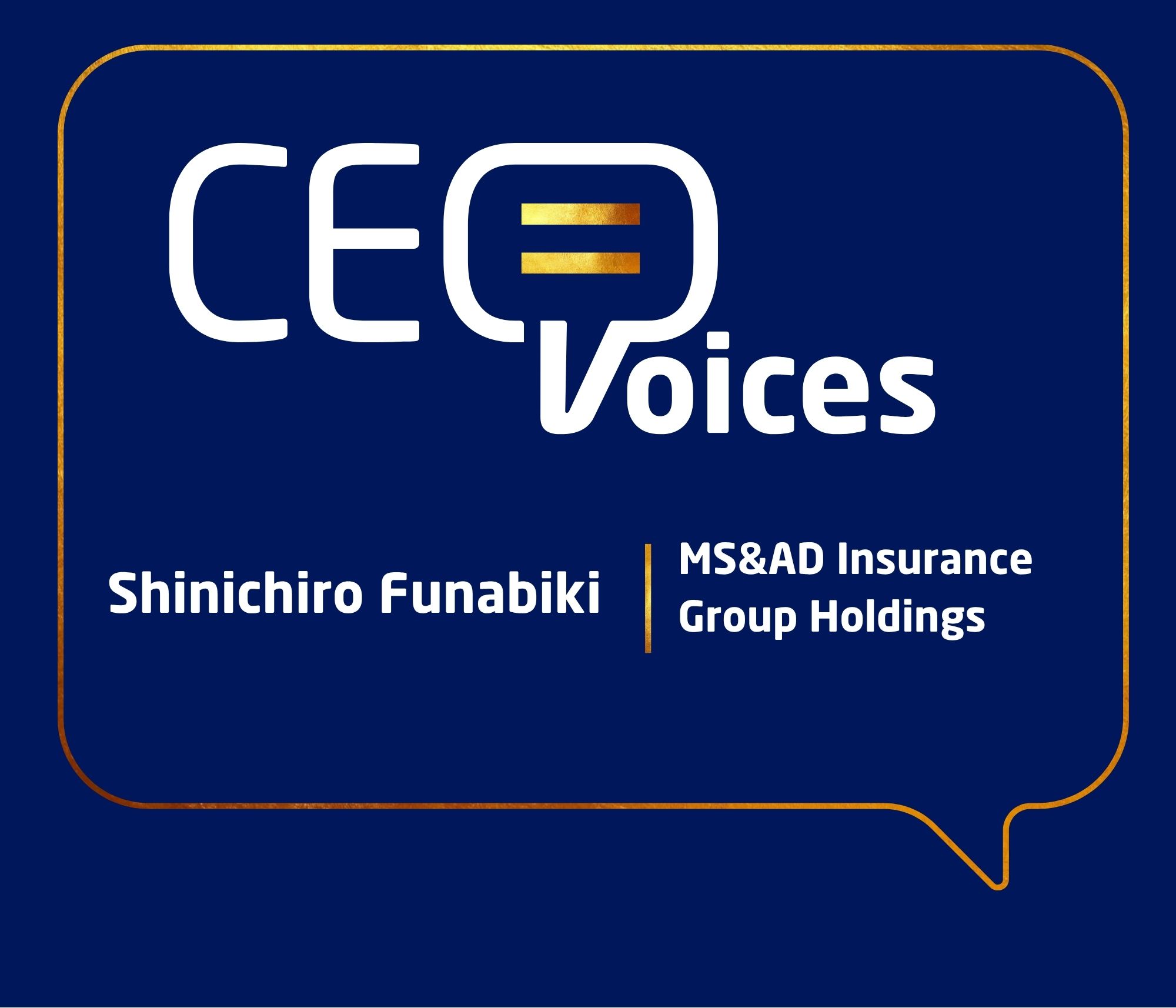
About MS&AD Insurance Group Holdings
Summary
President and CEO Funabiki notes that the most significant changes impacting the insurance industry will be the further evolution of digital technologies such as AI, big data analytics, IoT and blockchain. He emphasizes that MS&AD Insurance Group, as a "risk solution platform provider", aims to leverage these cutting-edge technologies to not only fulfil the traditional role of insurance - compensating for economic loss - but also to enhance pre- and post-compensation solutions, and that the Group's goal is to become “the most preferred insurance company among customers”.
Questions of Michał Trochimczuk, President of Sollers Consulting,
to Mr. Shinichiro Funabiki, President and CEO of MS&AD Group
Michał Trochimczuk: What have been the most important technological developments for the insurance industry in the last 25 years? And what have they meant for your business?
Shinichiro Funabiki: Over the past 25 years, the most important technological developments in the insurance industry have been the spread of the internet and the development of digitalisation.
The internet has revolutionised the way we build relationships with customers and has enabled online policy processing and administration. Our Group has leveraged this change to pursue faster and more convenient services for our customers. The introduction of digital platforms has led to an expansion of the insurance enrolment process, allowing customers to purchase insurance policies, review the policy details and make the necessary changes at their own pace.
From the digitalization perspective, one of the key developments has been the use of big data and AI. Advances in data analysis technology have enabled the delivery of products and services that meet customer needs by utilising all kinds of data surrounding society, including large volumes of customer data, accident data and even weather data, while also contributing to improved accuracy in risk assessment. In addition, the introduction of AI fraud detection, as well as crime prevention services using smart IoT cameras, has been accomplished. We believe that the timely adoption of advanced technology in the non-life insurance business is extremely important.
In motor insurance — one of the most familiar products to customers — we consider telematics insurance, which calculates premiums based on driving data acquired from dash cameras, to be a new product born from technological innovation. Furthermore, for policyholders of our telematics motor insurance, we have launched a new service that uses a unique algorithm to visualise the amount of CO₂ emissions reduced by safe driving. By offering the new added value of environmental protection alongside accident reduction and other benefits that we have traditionally provided, we are further contributing to solving social issues and supporting efforts to address global environmental concerns.
Michał Trochimczuk: With regard to the geopolitical, economic or environmental challenges currently facing the world, which do you consider the most important from your company's perspective? And how are you tackling them?
Shinichiro Funabiki: Our Group has identified three social issues — “coexistence with the global environment”, “ensuring a safe and secure society”, and “promoting the well-being of a diverse population” — as particularly important among the many issues facing the world today, and we are actively working to address them. Among these initiatives, we would like to highlight “climate change” and “cyber risks”, as these have a significant impact on the non-life insurance business.
Firstly, regarding climate change, environmental shifts resulting from an increase in natural disasters, such as typhoons and floods, as well as the transition to a decarbonised society, will significantly impact the non-life insurance business. We are working toward the realization of a resilient and sustainable society by addressing climate change from two perspectives: mitigation (decarbonisation) and adaptation (disaster prevention and risk reduction).
As part of our efforts to support decarbonisation, we provide a diverse menu of one-stop support services to local governments and customers across various industries. These include introductory seminars on decarbonisation, support for calculating CO₂ emissions, and developing CO₂ reduction strategies. In terms of insurance products, we offer the “Carbon Neutral Support Clause” as part of our company fire insurance. This clause covers additional costs of adopting new equipment and other measures that lead to reduce CO₂ emissions when restoring damaged buildings.
In addition, the increased frequency and severity of flooding in recent years has made it more important for companies to assess the future impact of flood risk. In response to these needs, we conduct joint research with government agencies and universities on disaster prevention and mitigation, providing new services reflecting the research results. The “Flood Risk Finder”, developed through this industry-academia collaborative research initiatives, enables quantitative impact assessments worldwide and supports an analytical understanding of the physical risks caused by climate change.
Regarding the cyber risks, we evaluate risks faced by companies from multiple perspectives, including not only the company itself but also its supply chain. As a Group, we provide a one-stop service that comprehensively supports the development of a multi-layered cyber risk response system for both insurance products and services.
The protection of customer information is fundamental and extremely important in an increasingly digital world. Within our Group, we constantly monitor the risk of data leaks and cyber-attacks, and by introducing the latest security technology, we build and maintain a robust infrastructure against cyber-attacks and thoroughly protect customer information. Furthermore, we are strengthening our internal security education, bearing in mind that cyber-attacks are often carried out not only from the perspective of the infrastructure, but also by exploiting human psychological and behavioural weaknesses. By ensuring that all employees are aware of the risks involved, we strengthen the defence capabilities of the entire organisation.
Michał Trochimczuk: What changes will have the greatest impact on the insurance industry in the future? What kind of expectations do you have for your business and what role do you think technological developments such as AI, IoT and quantum computing will play?
Shinichiro Funabiki: The changes that will have the greatest impact on the insurance industry in the future will be the further evolution of digital technologies such as AI, big data analytics, IoT and blockchain, and we believe that these cutting-edge technologies must be incorporated into the insurance business at the right time.
The business model of our Group is to provide solutions that contribute to solving social issues. The insurance business to date has mainly focused on compensating for economic losses through the payment of insurance claims. However, as a risk-solution platform provider, our Group goes beyond the core function of insurance by strengthening solutions offered before and after compensation and coverage. In doing so, we provide products and services that deliver the greatest value to our customers and society.
By combining the Group's diverse knowledge, experience and tools with advanced technologies such as AI, telematics and digital data, we help customers detect and prevent risks in advance, minimise damage and recover quickly. We believe that this approach will provide our customers with peace of mind and security, while positioning us as the most preferred insurance provider. It will also contribute to the growth of the Group.
This is why we think it's crucial to adopt advanced technologies like AI and IoT. For instance, AI can analyse customer behaviour and needs to facilitate provision of personalised services. AI is expected to accelerate the automation of risk assessment and improve customer service, thereby increasing operational efficiency. IoT enables real-time data collection through sensor technology, allowing insurance products to be more personalised and risks to be properly assessed.
We already offer AI and IoT combined solutions, such as AI-powered dash cameras and home security cameras. In the future, we will leverage the ever-evolving capabilities of AI to enhance customer interactions, enabling us to deliver correct information more quickly and improve the overall value we provide to our customers.
Quantum computers have the ability to process complex calculations that have been difficult with conventional computers, and we believe they can be used in areas such as climate change prediction, which is a major threat to the non-life insurance business, the development of insurance products and the advancement of risk management in particular.
We are actively researching and applying these technologies to our operations in pursuit of greater efficiency. Our aim is to maintain competitive edge in the industry by continuing to deliver value, and to become an insurance group that provides the most trusted and most preferred insurance and financial services among customers.
Michał Trochimczuk: It was announced that Mitsui Sumitomo Insurance and Aioi Nissay Dowa Insurance, two companies within the Group, will be merged by April 2027. Your company has been working to improve the efficiency and quality of operations through the “One-platform Strategy”, but how do you plan to integrate the systems of the two companies in preparation for the merger? Could you also tell us what your current thoughts are on your IT and DX (digital transformation) strategies after the merger?
Shinichiro Funabiki: Under the Group's medium-term management plan (2022–2025), we have been working to improve the efficiency and quality of operations through the “One-platform Strategy”. This strategy promotes the standardisation, collaboration and integration across the middle- and back-office divisions of Mitsui Sumitomo Insurance and Aioi Nissay Dowa Insurance.
The merger is part of a new business transformation aimed at breaking away from the conventional business model and creating a virtuous cycle of growth and trust. In particular, from the perspective of the expense ratio, we believe that fundamental structural reform of the business is necessary to achieve a level below the global benchmark of 30%. To realize this transformation, we will promote major decommissioning and integration of outdated systems that have fulfilled their roles, significantly lowering operating and maintenance costs – the core components of our IT cost structure – thereby improving our business operations and reducing operating expenses.
In addition, we believe it is necessary to incorporate new value into the Group-wide systems by strengthening our ability to adapt flexibly to the unprecedented environmental changes and globalisation, ensuring resilience, and strengthening cyber security measures. Following the merger, we will pursue a customer-oriented approach by investing in the next-generation systems and DX-related technologies, aiming to establish a new source of profit for the new company.
Michał Trochimczuk: Your company has identified strengthening pre- and post-compensation/coverage solutions, as well as reducing the expense ratio through the use of data, digital technology and AI, as key pillars of its management strategy. To achieve these goals, developing human capital is of paramount importance. Please could you tell us about your company's IT and digital human capital development policy and specific initiatives?
Shinichiro Funabiki: The issues facing society, such as global warming, the biodiversity crisis, falling birthrate, ageing population and cyber-attacks are becoming increasingly complex and diverse. Given these issues, we are fostering digital talent, including data scientists with deep expertise. These professionals leverage a wealth of accumulated data and the latest analytical technology to quickly identify and visualise previously undetectable risks, thereby supporting our customers' preparedness.
In addition to the original functions of insurance, we will deliver the most valuable products and services to customers and society by strengthening the solutions we provide both before and after compensation and coverage. In this period of rapid change in the business environment, we aim to leverage our global competitiveness and translate it into sustained growth.
Data, digital technologies and AI support the enhancement of solutions both before and after compensation and coverage. At the same time, we are promoting bold reforms to enhance customer satisfaction and convenience, as well as to improve productivity for both us and our agents by digitising all insurance-related procedures. In addition, we will seek to make our products and procedures easier to understand from the customer's point of view, and optimise the structure of our IT systems accordingly, thereby changing our profit structure.
We believe that the use of AI is key to promoting operational efficiency, and we have already created an environment in which approximately 30,000 employees can safely use generative AI, and many examples of improved operational efficiency have emerged. Our Group has collaborated with multiple universities and focused on developing digital and innovation talent since 2018. We plan to increase the number of digital human resources to approximately 7,000 by 2025, and together with around 100 data scientists, we expect them to lead the digitalisation process. In addition, to increase the effectiveness of operations using AI, we will accelerate our efforts by proactively engaging external expertise and specialists from within and outside the company as necessary.
Through this merger, we will become the No. 1 insurance company in Japan in terms of premium income. As a company of this scale, we feel that we are expected to play a significant role in social safety and contribute to economic development. We also recognize the expectation to strive for world-class corporate value, to further enhance the value we deliver to customers by leveraging data, digital technologies, and AI. We believe that this is essential for becoming “the insurance company most chosen by customers.”
CEO Voices Interviews
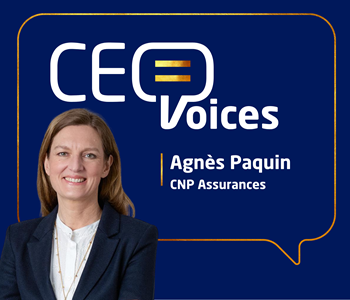


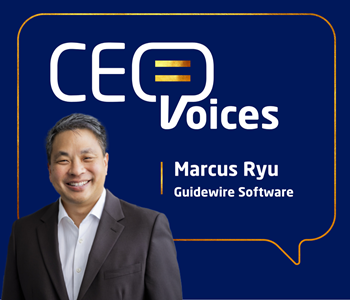
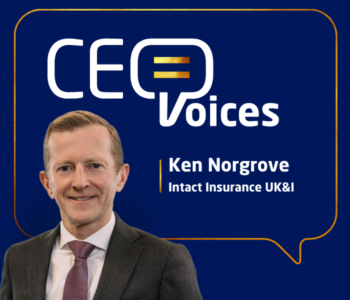



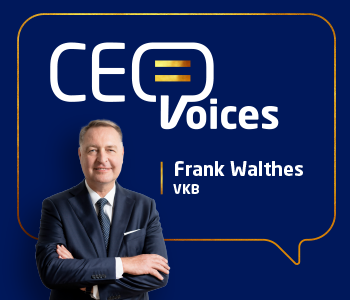
Share Your thoughts


